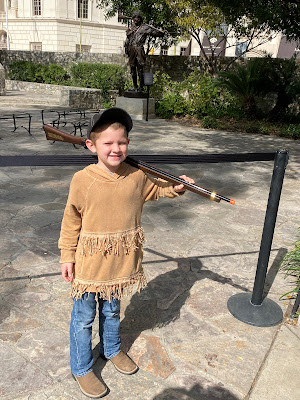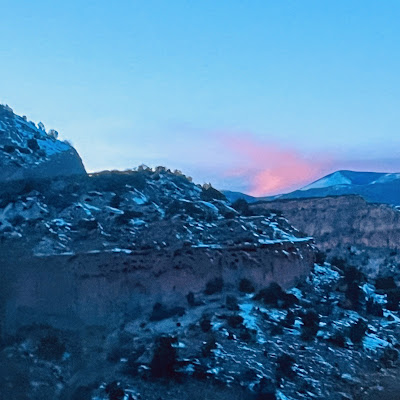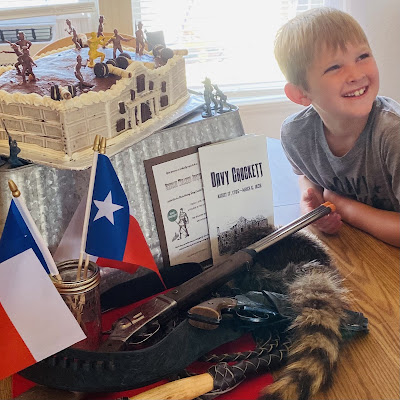"Be always sure you're right, then go ahead." Happy Memorial Day!
It's possible that not everyone is as familiar with one of our most beloved American heroes, so we did a little research to share the legendary history of, “The King of the Wild Frontier.” We even got to visit the Alamo a couple of years ago! Justice, especially, loves Davy Crockett, and over the years, we've delved into the life and times of Davy quite a bit.
On this Memorial Day, we thought it was appropriate to share our love of this American legend. Davy's life and death demonstrate the same ideals motivating our modern heroes--to live a life of courage and virtue, to “Be always sure you’re right, then go ahead,” and for independence from tyranny in America.
The King of the Wild Frontier
Davy was born on August 17, 1786 to John and Rebecca (Hawkins) Crockett in a cabin at the juncture of the Nolichucky River and Limestone Creek in eastern Tennessee. (This was only 10 years after the signing of the Declaration of Independence!)
According to Davy, his father was of Irish descent, and fought in the revolutionary war in the battle of King’s Mountain, “against the British and tories, and in some other engagements, of which my remembrance is too imperfect to enable me to speak with any certainty.” (Fron Davy's autobiography.)
As one of nine children of a struggling pioneer family, Davy moved several times throughout his childhood and was often hired out to help support the family and pay off his father’s debts. He received almost no formal education, but became an renowned woodsman, scout, warrior, and hunter.
Davy married Mary “Polly” Finley in 1806 and had three children, then after she died, Davy married widow Elizabeth Patton (who had two children of her own), and had three more children.
"I'm that same David Crockett, fresh from the backwoods, half-horse, half-alligator, a little touched with the snapping turtle; can wade the Mississippi, leap the Ohio, ride upon a streak of lightning, and slip without a scratch down a honey locust."
In 1813 Davy joined the Tennessee militia as a scout and fought against the Creek Indians in Alabama. In addition to his military career, Davy also worked in barrel-making, manufacturing gunpowder, farming, public office, and hunting. His hunting grew to a legend in his own time, and though exasperated by other’s tall tales regarding his various exploits, Davy himself claimed to have shot 105 black bears over the course of a single year.
"There ain't no ticks like poly-ticks. Bloodsuckers all."
Davy was elected to the U.S. House of Representatives in 1829 and 1833. In Congress, he was known as “the gentleman from the cane.” He fought for land and tax rights of poor settlers and ultimately lost political popularity when he opposed President Andrew Jackson regarding the removal of Native Americans from tribal lands. Even as political opponents, Davy still helped to stop an assassination attempt on the president in 1835. Upon losing his seat in 1835, he left to join Texas in their fight for independence.
"You may all go to hell, and I will go to Texas." --Davy is famously quoted as saying this when he lost his congressional seat in 1835.
Davy arrived in Texas and promptly swore an oath to the Republic of Texas. Now age 49 (he had been in Texas only 3 months), he took up a post he knew to be almost certain death at San Antonio de Bexar in the former Franciscan mission known as the Alamo.
Santa Anna and the Mexican forces massacred the nearby city of Goliad then lay siege to the Alamo a few days later, and on March 6, 1836, they breached the walls, killing Davy and the 200 defenders.
"Remember the Alamo!"
Because of their legendary refusal to surrender, the cry, “Remember the Alamo!” rallied Texas volunteer forces under Sam Houston and is credited with aiding in their ultimate victory against Mexico later that year.
Happy Memorial Day!


.jpg)
.jpg)


Comments
Post a Comment